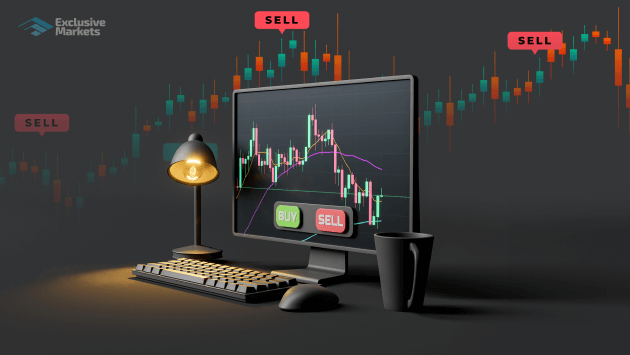
Is Forex trading worth it? This question has become increasingly relevant in today’s fast-paced financial landscape. With the rise of digital platforms and the accessibility of trading tools, many individuals are contemplating whether they should enter the world of Forex trading. For those in Nigeria or looking to work with is forex trading worth it Nigeria Brokers, the opportunity may seem even more appealing. In this article, we will dive deep into the essentials of Forex trading, analyze its potential benefits and drawbacks, and help you make an informed decision.
Understanding Forex Trading
The foreign exchange market, or Forex, is the largest financial market in the world, with an average daily trading volume exceeding $6 trillion. Unlike traditional stock markets, Forex operates 24 hours a day, five days a week, allowing traders to buy and sell currencies globally at any time. The primary aim in Forex trading is to profit from the changes in currency exchange rates. Traders buy one currency while simultaneously selling another, working usually with currency pairs such as EUR/USD or GBP/JPY.
Pros of Forex Trading
Before determining whether Forex trading is worth it, let’s evaluate its advantages:
1. High Liquidity
Forex market’s immense scale and volume translate to high liquidity, meaning that traders can quickly enter or exit positions with minimal price slippage. This factor is particularly beneficial for those employing short-term trading strategies.
2. Leveraged Trading
Forex brokers often offer leverage, which allows traders to control larger positions with a smaller amount of capital. This means that even minor price movements can lead to significant profits. For instance, a leverage ratio of 100:1 implies that with $1,000, you can control a position worth $100,000.
3. Accessibility
With the advent of online trading platforms and mobile trading apps, individuals can now engage in Forex trading from the comfort of their homes or on the go. This accessibility lowers barriers to entry and opens doors for people who may not have previously considered trading as an option.
4. Diverse Trading Strategies
Forex trading offers a myriad of strategies, from scalping to swing trading to long-term investment approaches. Traders can choose based on their risk tolerance, market knowledge, and time commitment, providing flexibility that caters to different lifestyles.
5. Global Market
The Forex market encompasses currencies from around the globe, allowing traders to take advantage of international economic news and events. This global perspective can lead to unique trading opportunities not found in local markets.
Cons of Forex Trading
While Forex trading comprises various benefits, it is crucial to consider the associated risks and disadvantages:
1. High Volatility
Currency prices can be extremely volatile, influenced by economic indicators, political events, and market sentiment. While volatility can lead to profit opportunities, it equally poses risks, including substantial losses in a short span.
2. Risk of Losses

As the old trading mantra goes, “the higher the potential reward, the higher the risk.” Forex trading is inherently risky; many traders incur losses, especially beginners who may not adequately understand the market or develop effective trading strategies.
3. Psychological Stress
Trading can be emotionally taxing, as the outcome of trades is immediate. Emotions can lead to impulsive decisions, which may compromise a trader’s discipline and adherence to their trading plan. Learning to manage emotions is vital for long-term success.
4. Costs and Fees
Forex trading may involve various hidden costs or fees such as spreads, commissions, and overnight financing charges (swap rates). These costs can eat into profits, so it’s essential to account for them when calculating potential returns.
5. Overtrading
The continuous nature of Forex trading can lead to overtrading, where traders take too many positions in a short timeframe in the hope of recouping losses or maximizing returns. Overtrading often results in burnout and greater chances of financial loss.
Is Forex Trading Worth It? Key Considerations
To answer whether Forex trading is worth it, consider the following factors:
1. Personal Goals
Are you looking for a full-time career in trading, or do you intend to treat it as a secondary source of income? Understanding your goals will shape your trading approach and risk tolerance.
2. Time and Dedication
Successful Forex trading requires time and dedication for market analysis, strategy development, and continuous education. Assess your schedule and commitment levels before diving in.
3. Educate Yourself
Take the time to learn about Forex trading, including various strategies, risk management techniques, and market trends. Engaging in simulation trading can help you gain experience without financial risk.
4. Start Small
If you choose to enter the Forex market, start with a small investment. This approach allows you to test your strategies and learn without the pressure of losing significant amounts of money.
Conclusion
Ultimately, whether Forex trading is worth it depends on your individual circumstances, willingness to learn, and ability to manage risk. While the opportunities for profit are significant, so too are the challenges. By understanding the market and employing a disciplined approach, you may find that Forex trading can be a rewarding venture.
As with any investment opportunity, take your time, do your research, and consider consulting with financial advisors or experienced traders to enhance your understanding and strategy. Whether you are a novice or experienced trader, the key is to stay informed and approach the Forex market with caution and wisdom.
